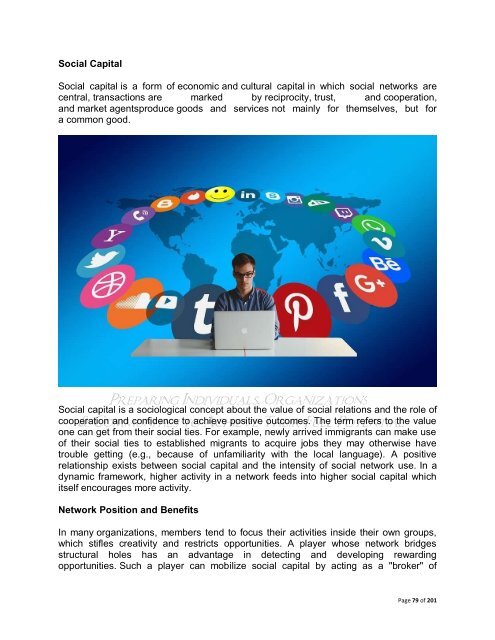ComeUnity CAPACITY BUILDING
ComeUnity CAPACITY BUILDING
ComeUnity CAPACITY BUILDING
You also want an ePaper? Increase the reach of your titles
YUMPU automatically turns print PDFs into web optimized ePapers that Google loves.
Social Capital<br />
Social capital is a form of economic and cultural capital in which social networks are<br />
central, transactions are marked by reciprocity, trust, and cooperation,<br />
and market agentsproduce goods and services not mainly for themselves, but for<br />
a common good.<br />
Social capital is a sociological concept about the value of social relations and the role of<br />
cooperation and confidence to achieve positive outcomes. The term refers to the value<br />
one can get from their social ties. For example, newly arrived immigrants can make use<br />
of their social ties to established migrants to acquire jobs they may otherwise have<br />
trouble getting (e.g., because of unfamiliarity with the local language). A positive<br />
relationship exists between social capital and the intensity of social network use. In a<br />
dynamic framework, higher activity in a network feeds into higher social capital which<br />
itself encourages more activity.<br />
Network Position and Benefits<br />
In many organizations, members tend to focus their activities inside their own groups,<br />
which stifles creativity and restricts opportunities. A player whose network bridges<br />
structural holes has an advantage in detecting and developing rewarding<br />
opportunities. Such a player can mobilize social capital by acting as a "broker" of<br />
Page 79 of 201

















